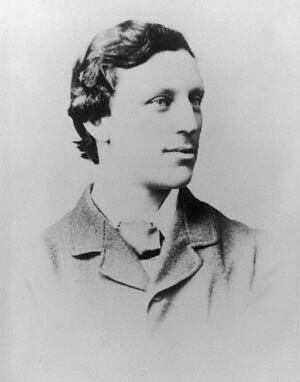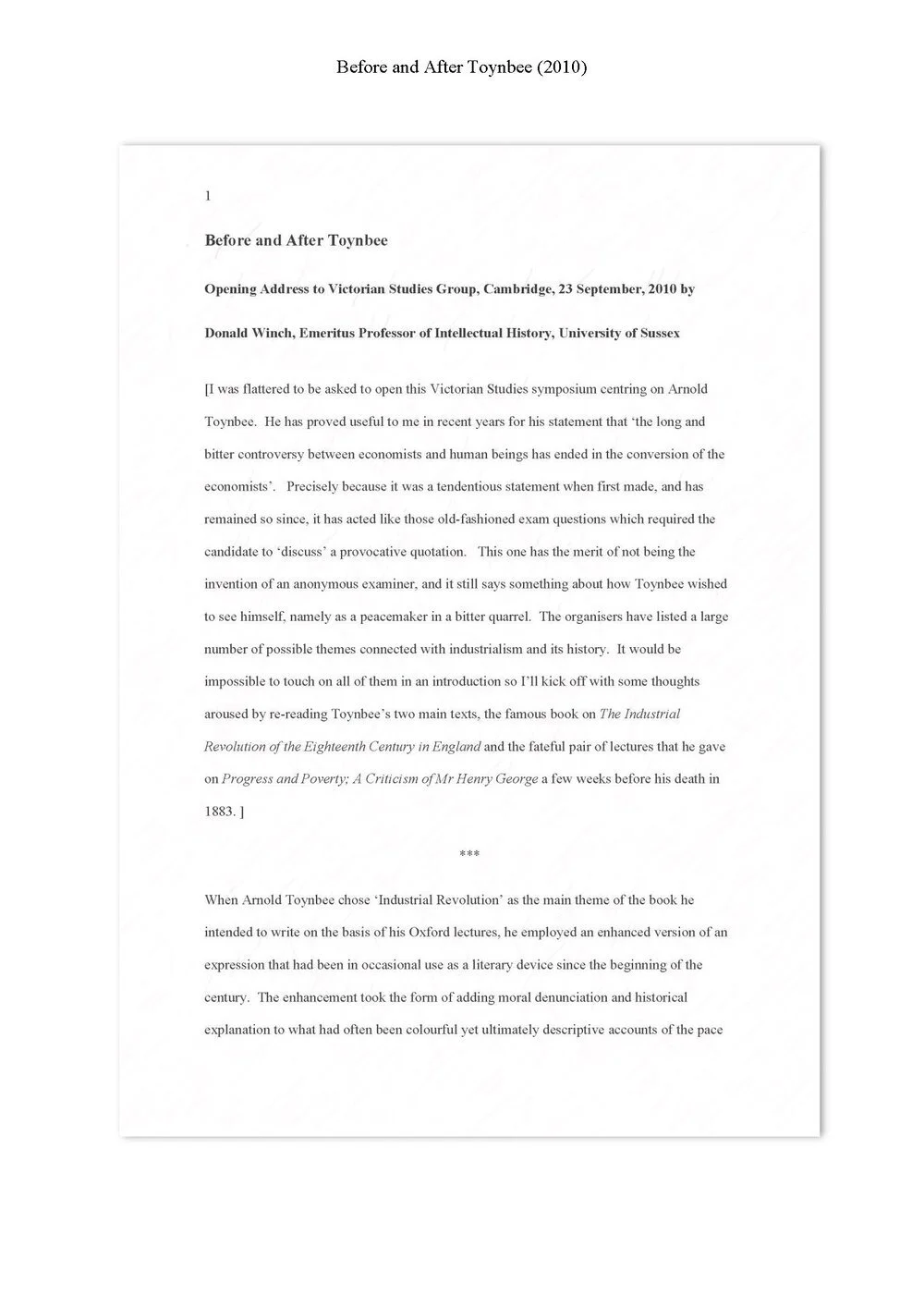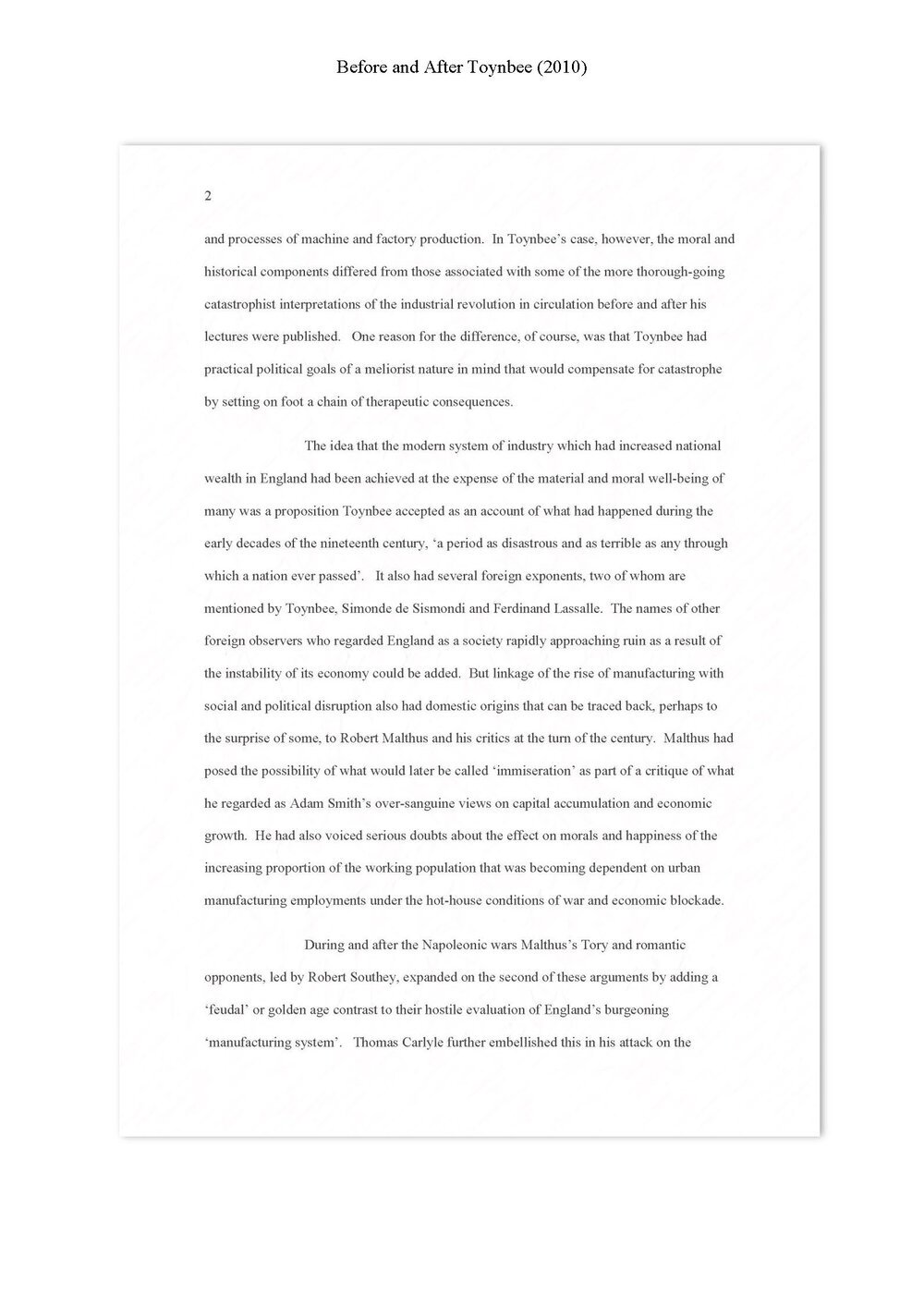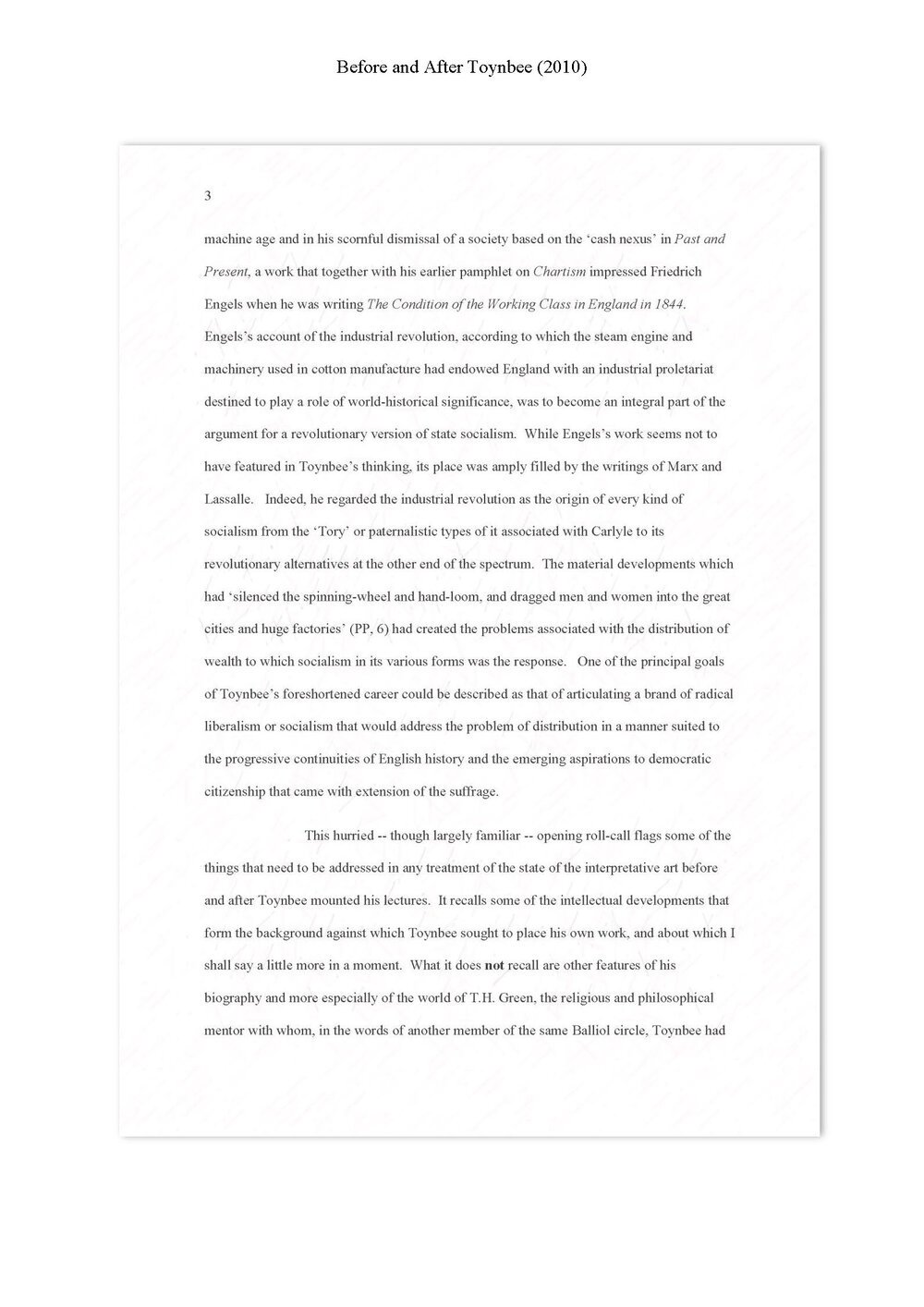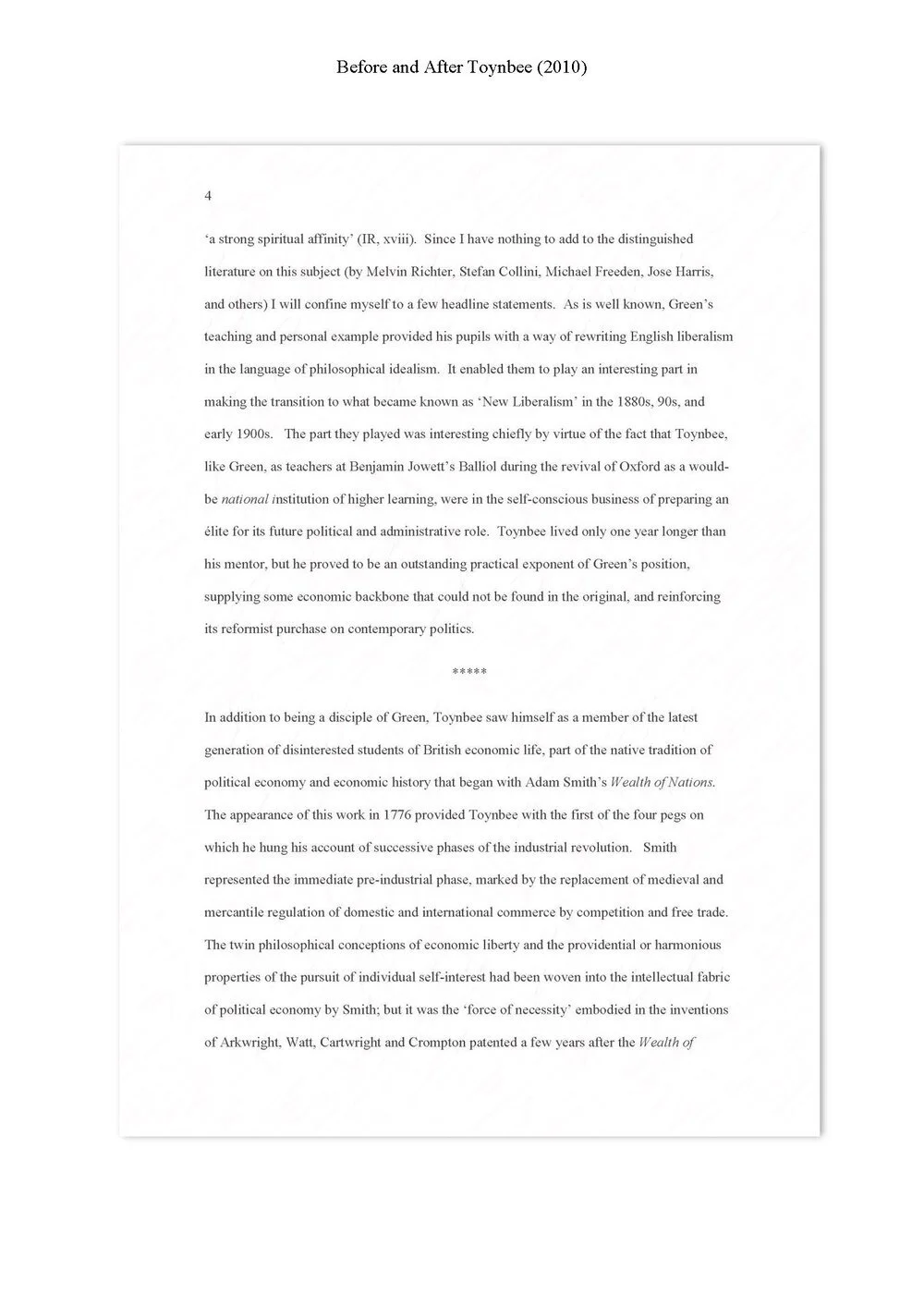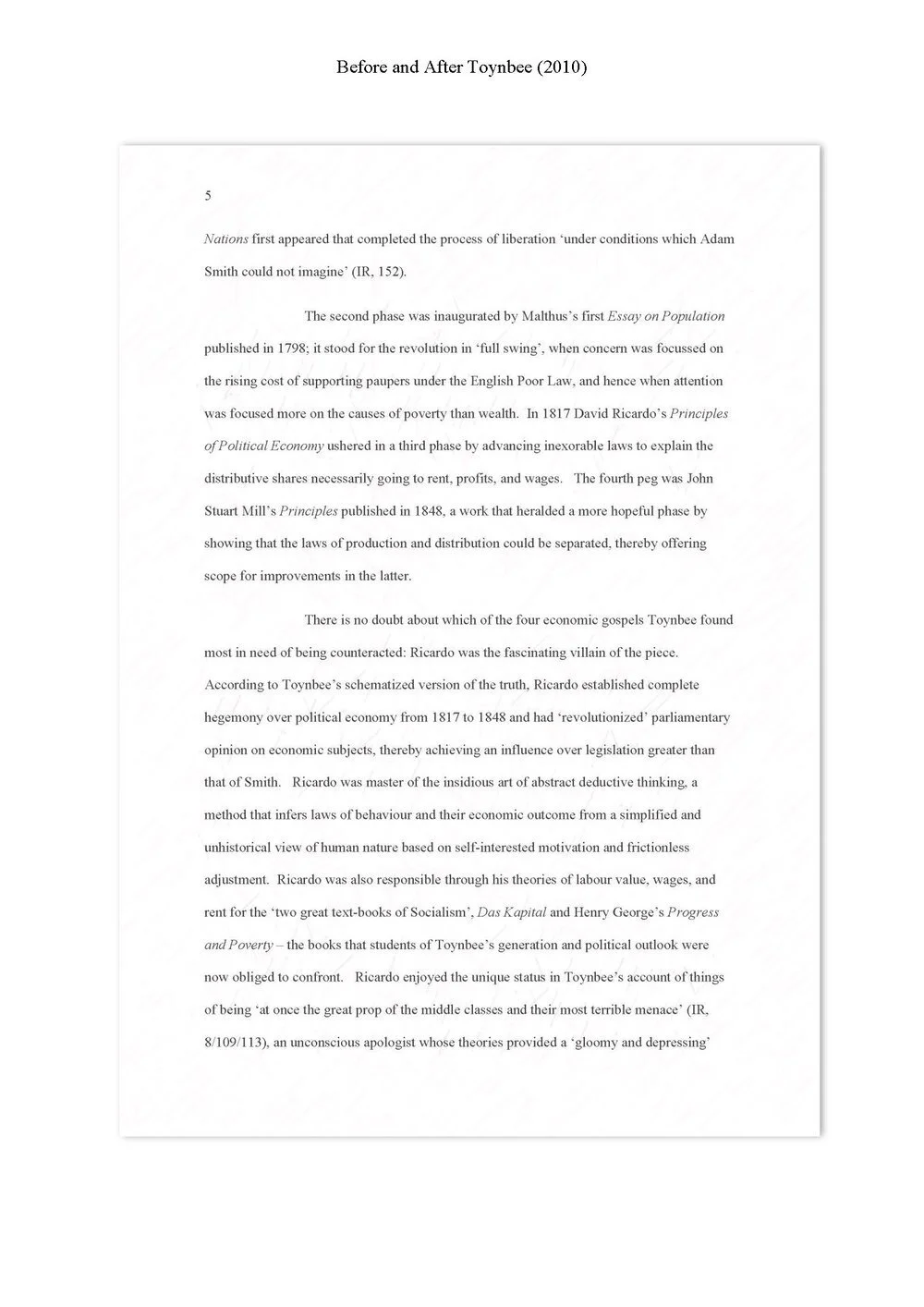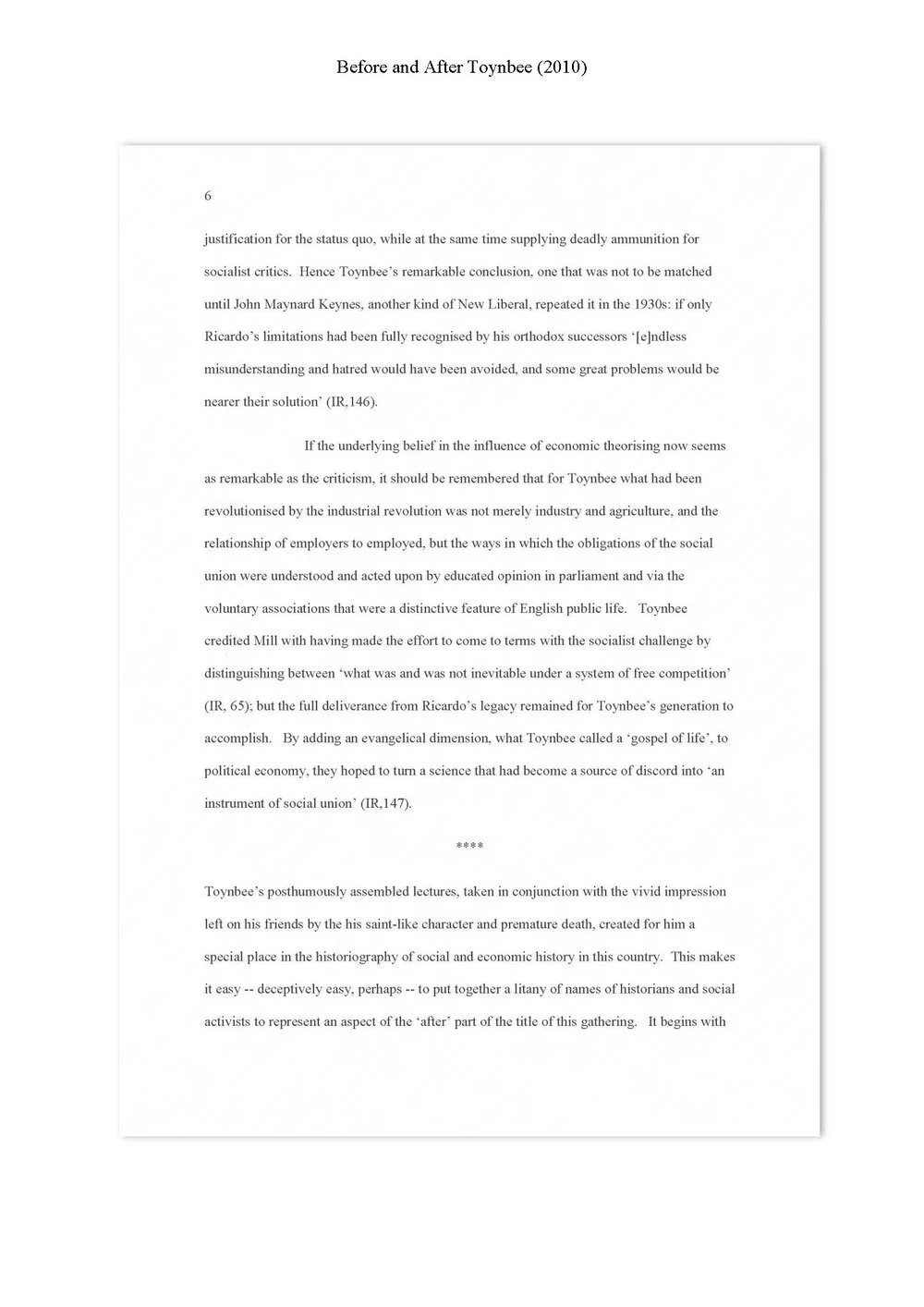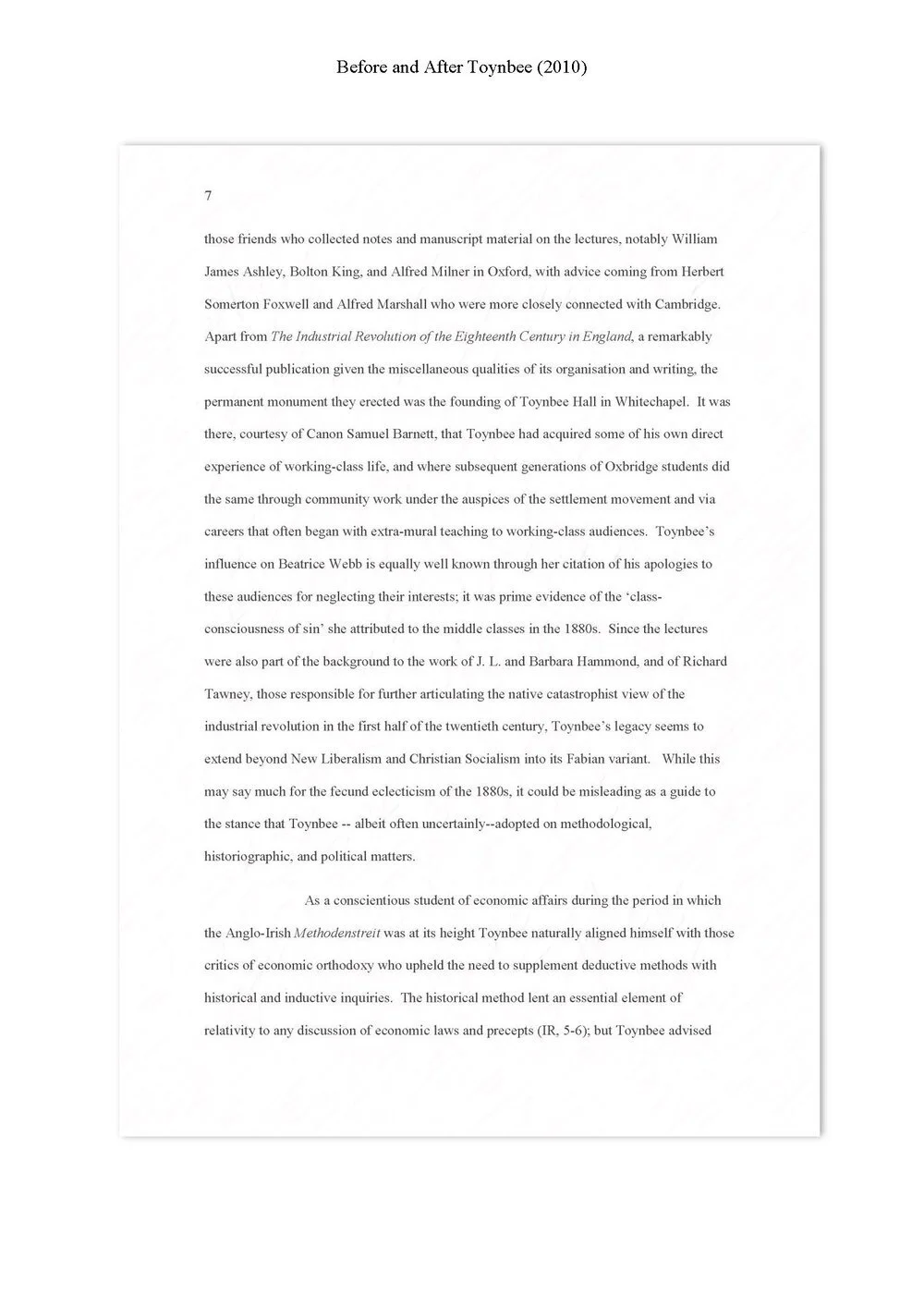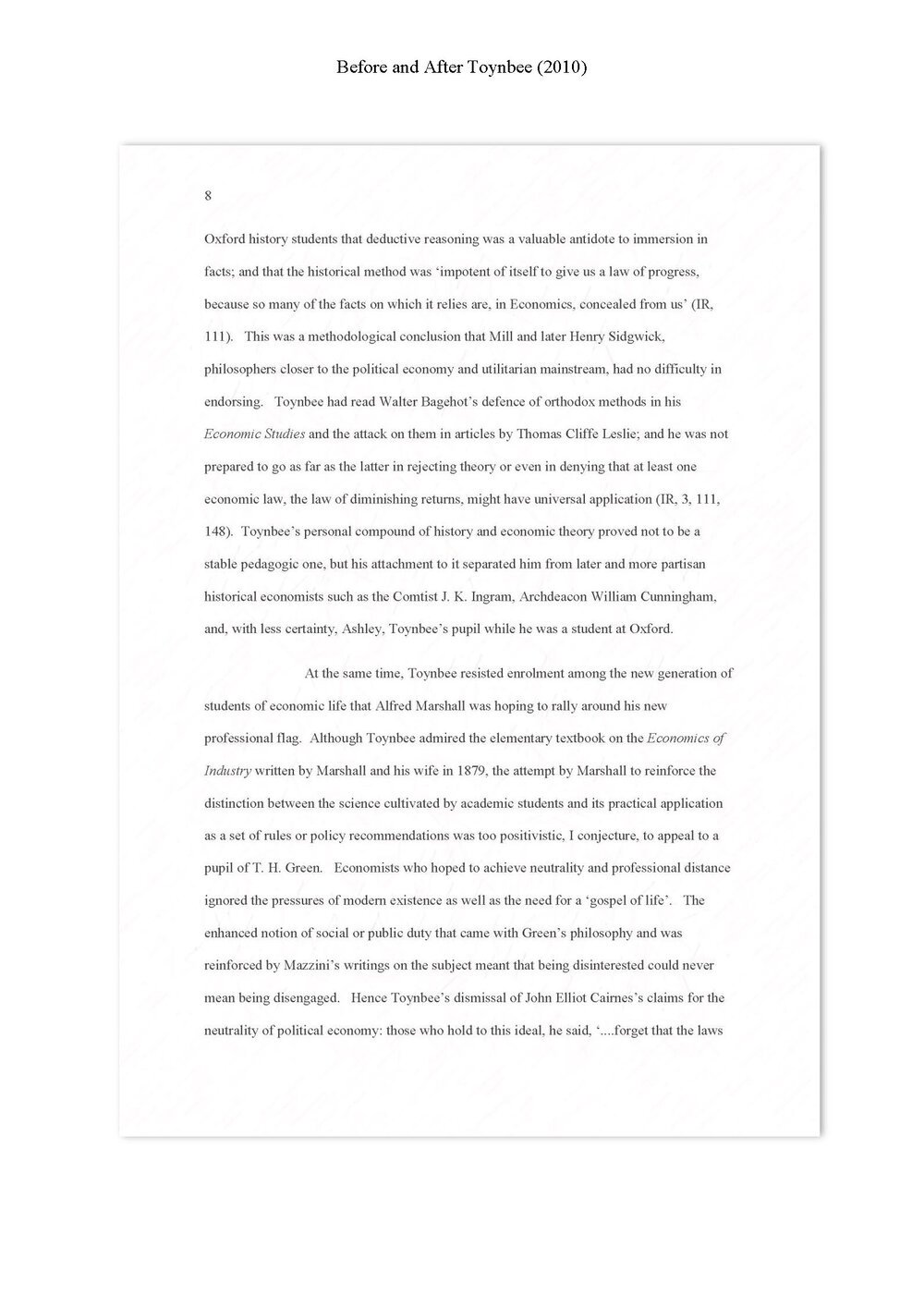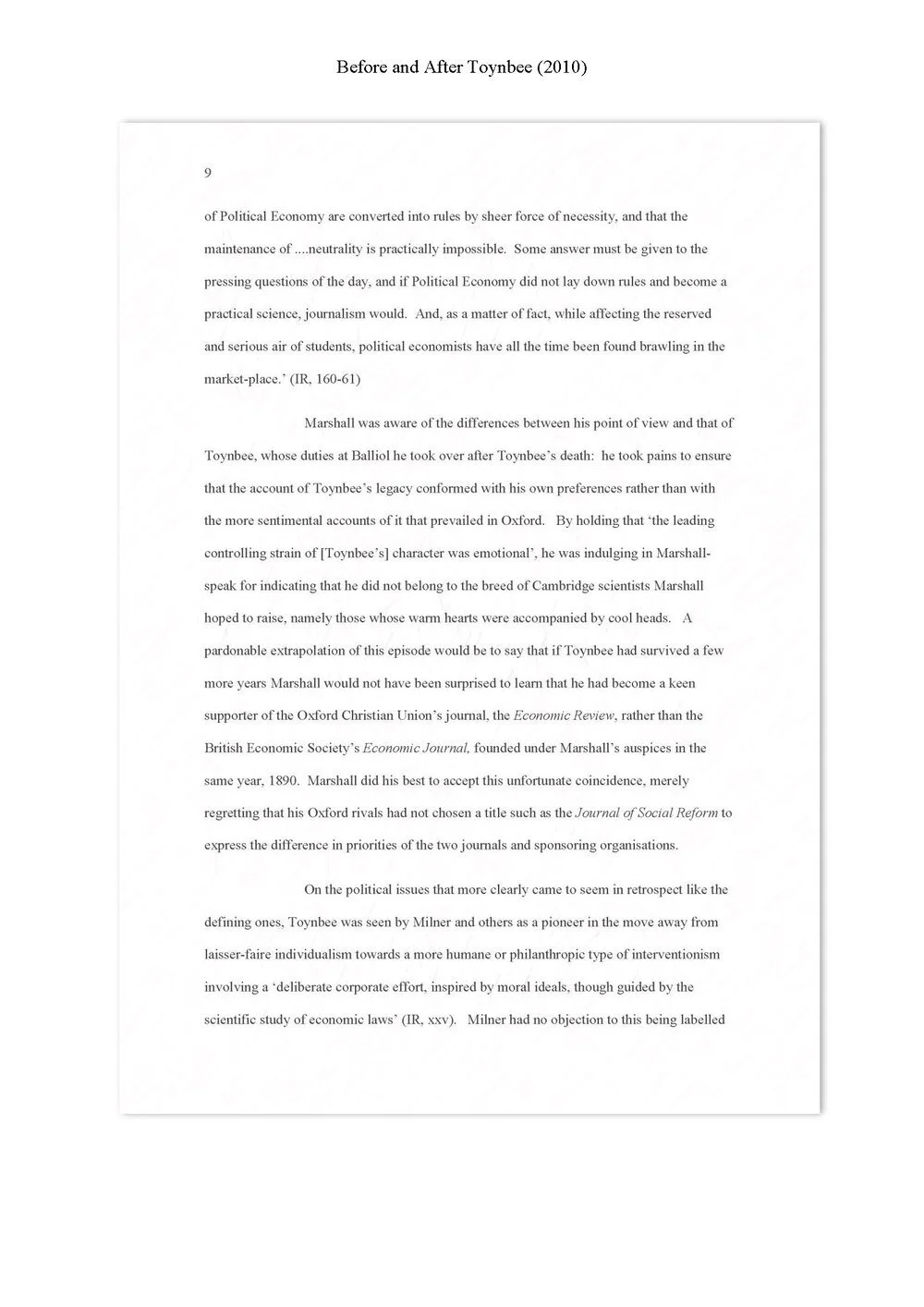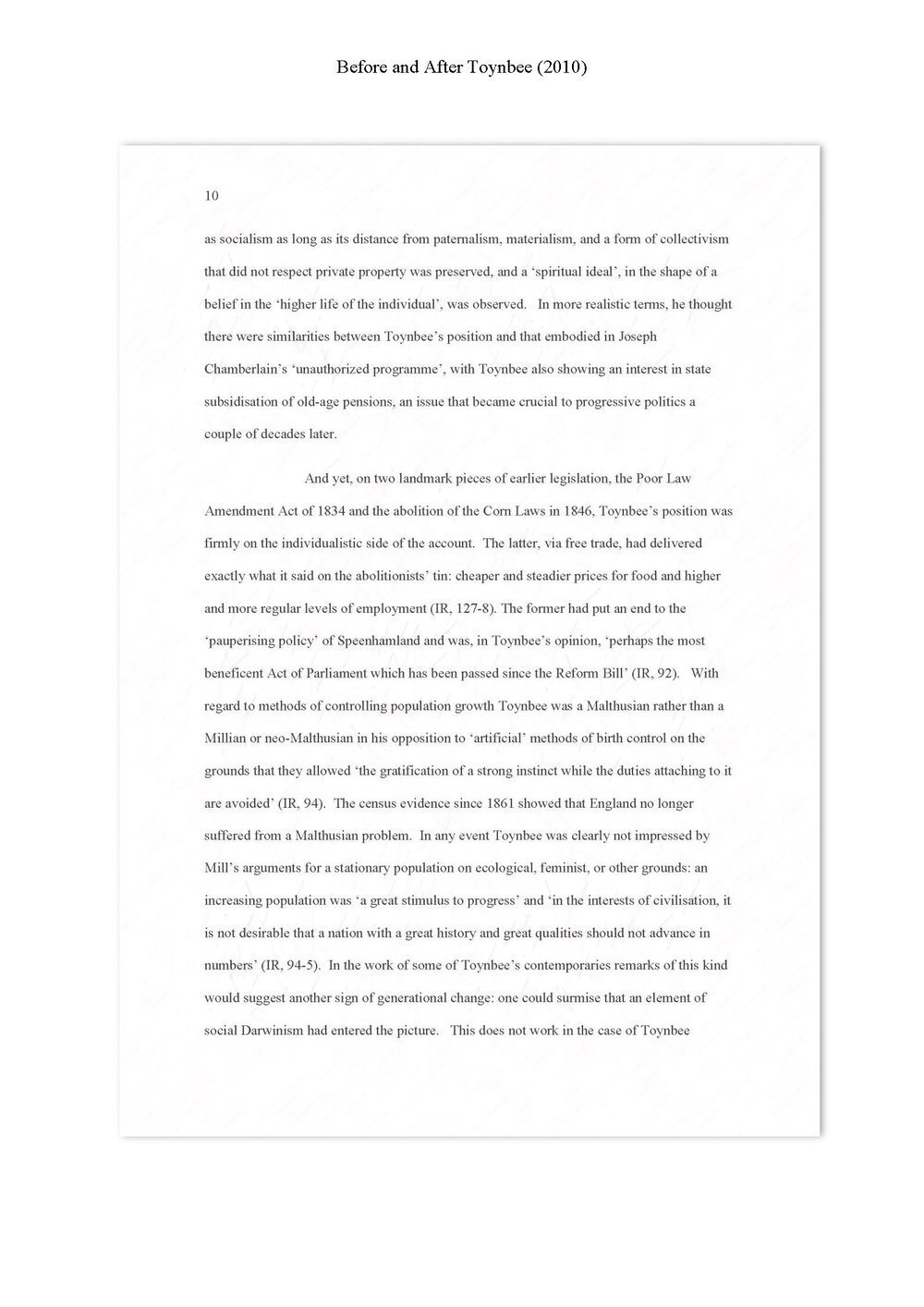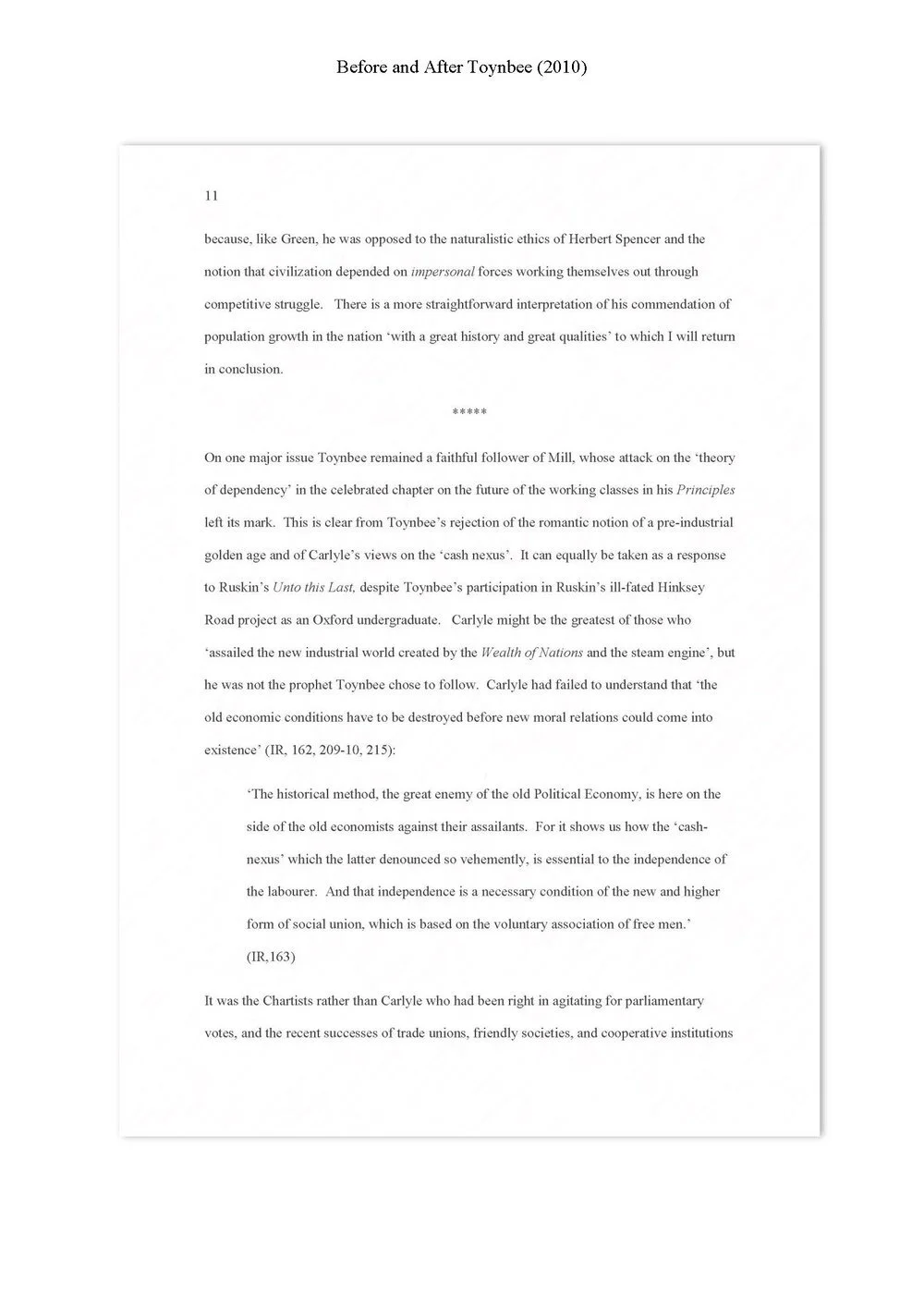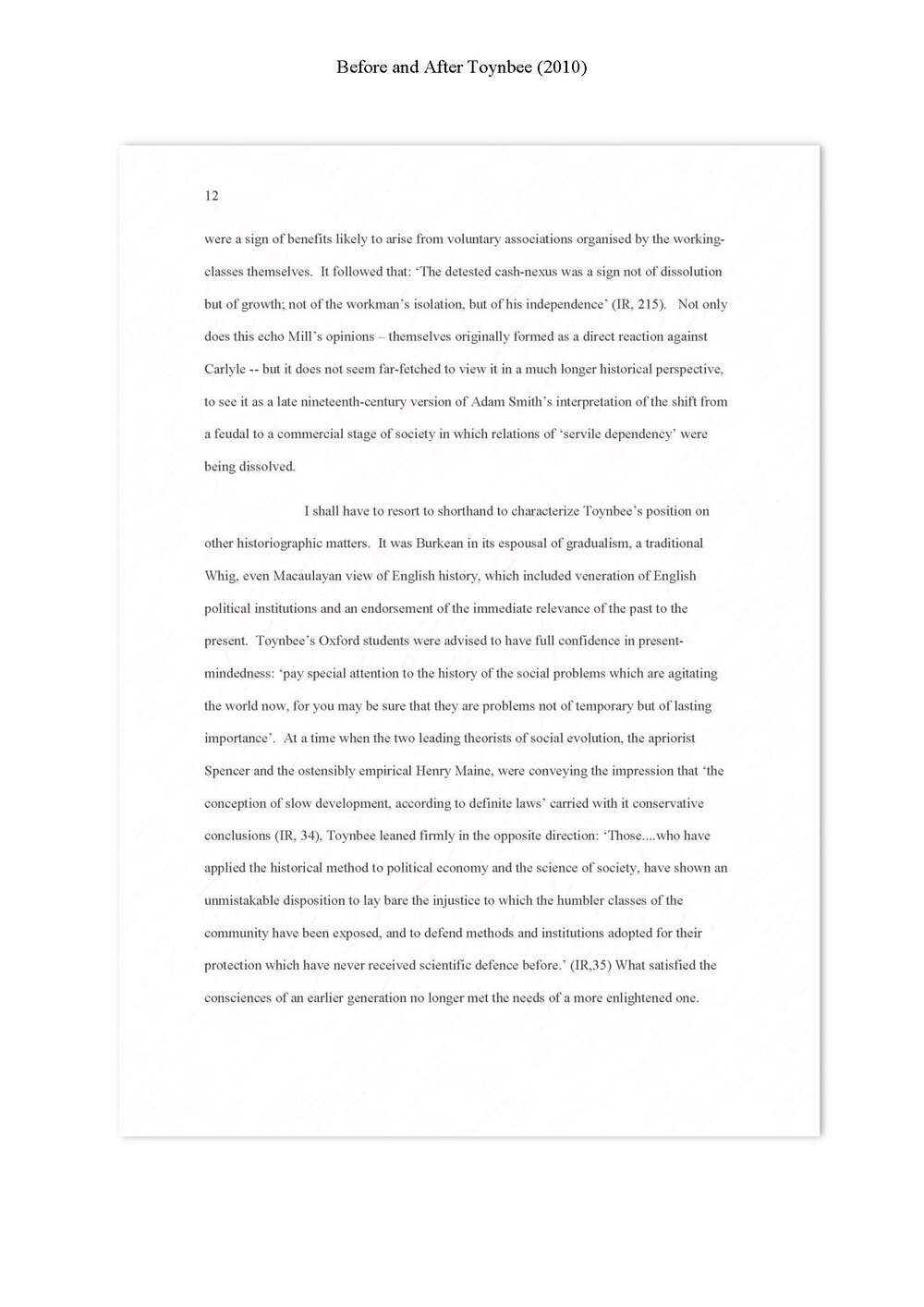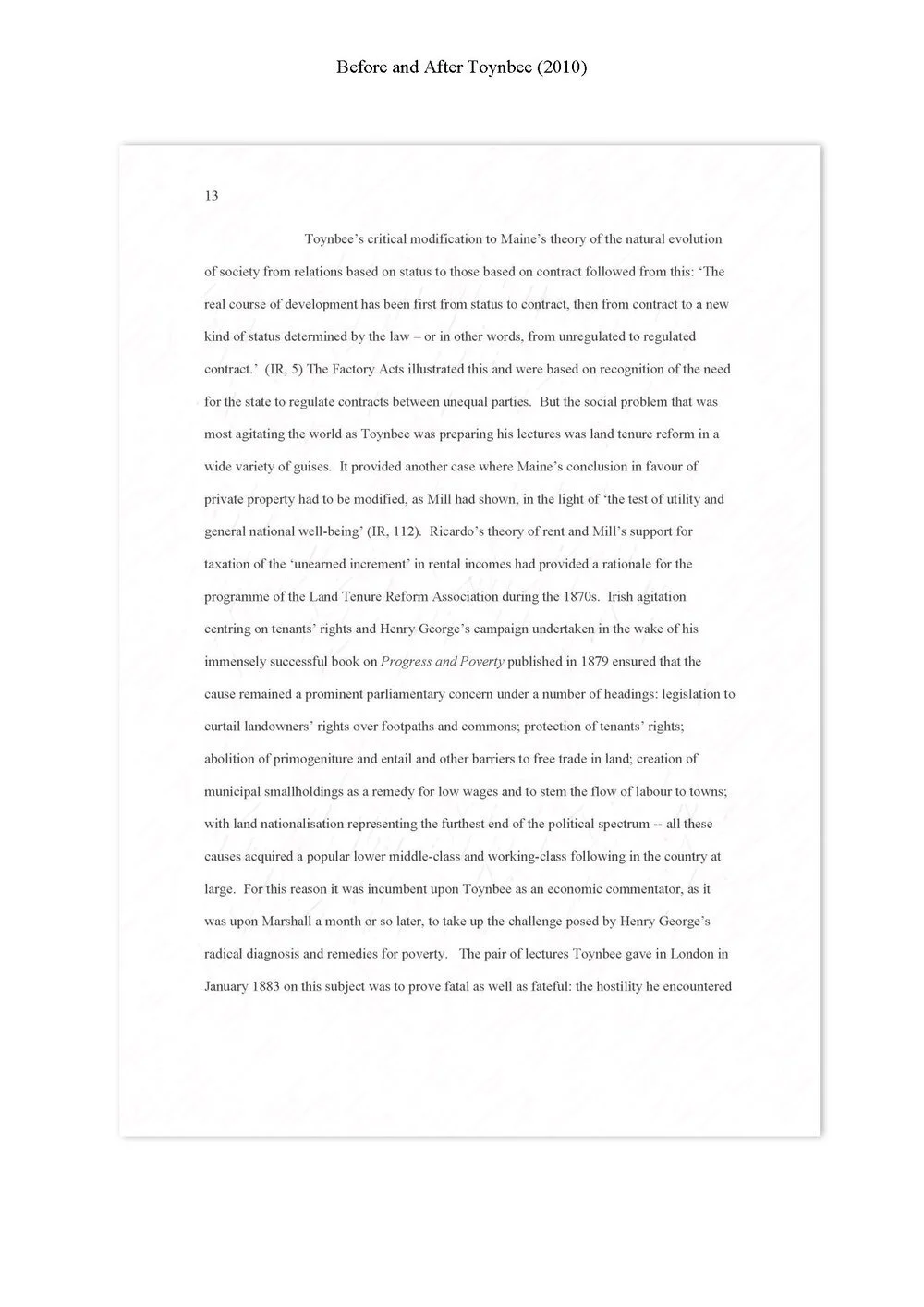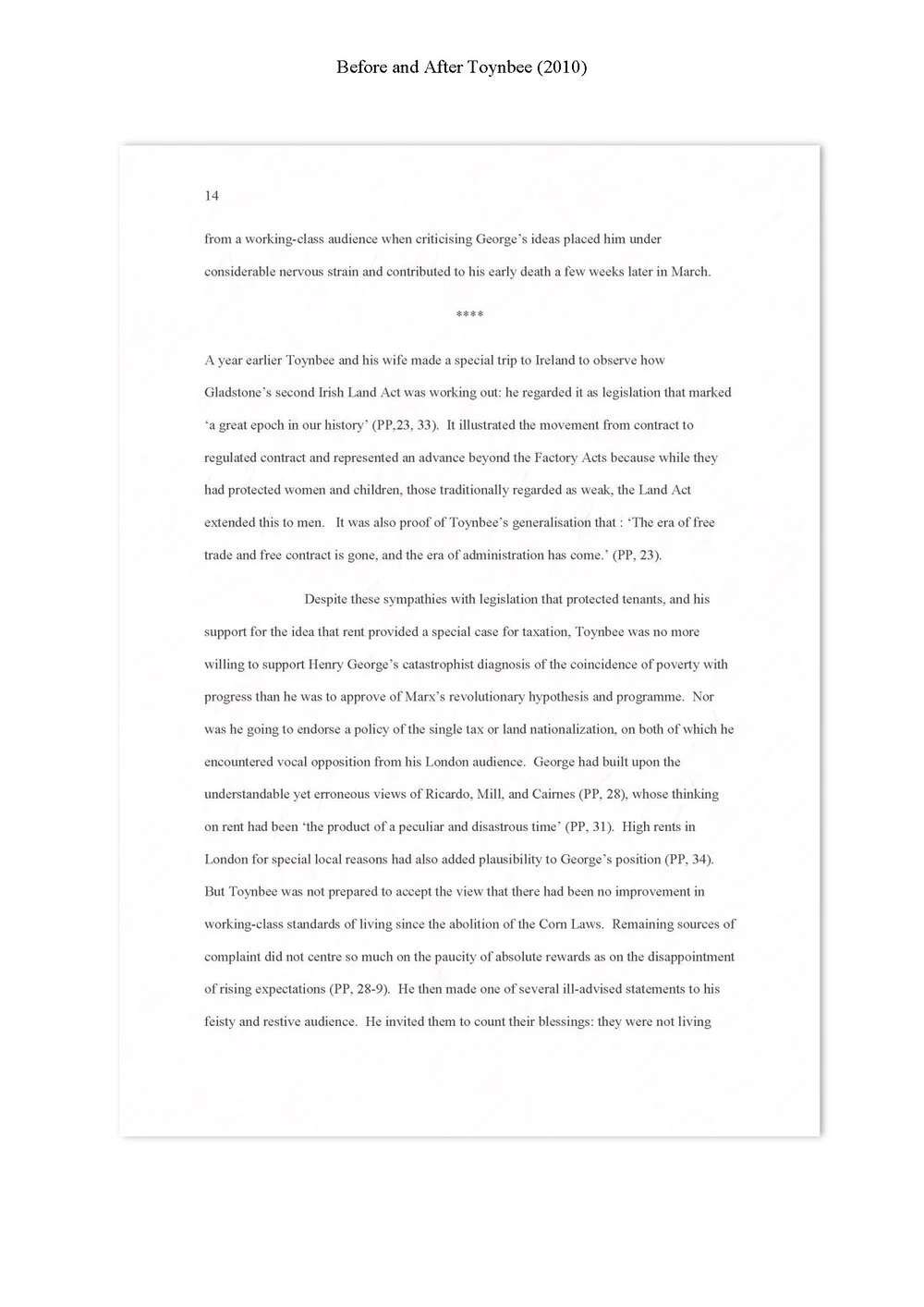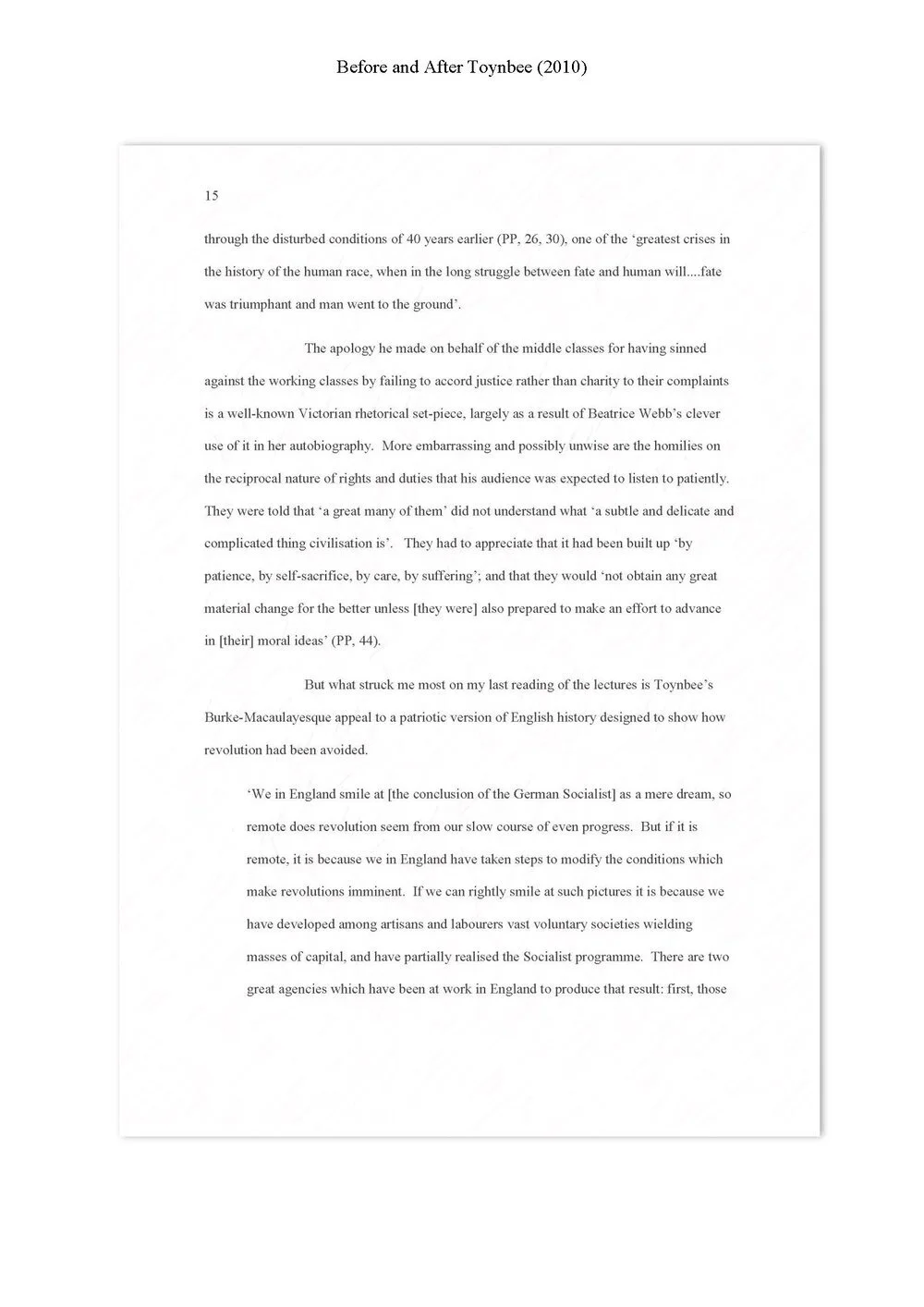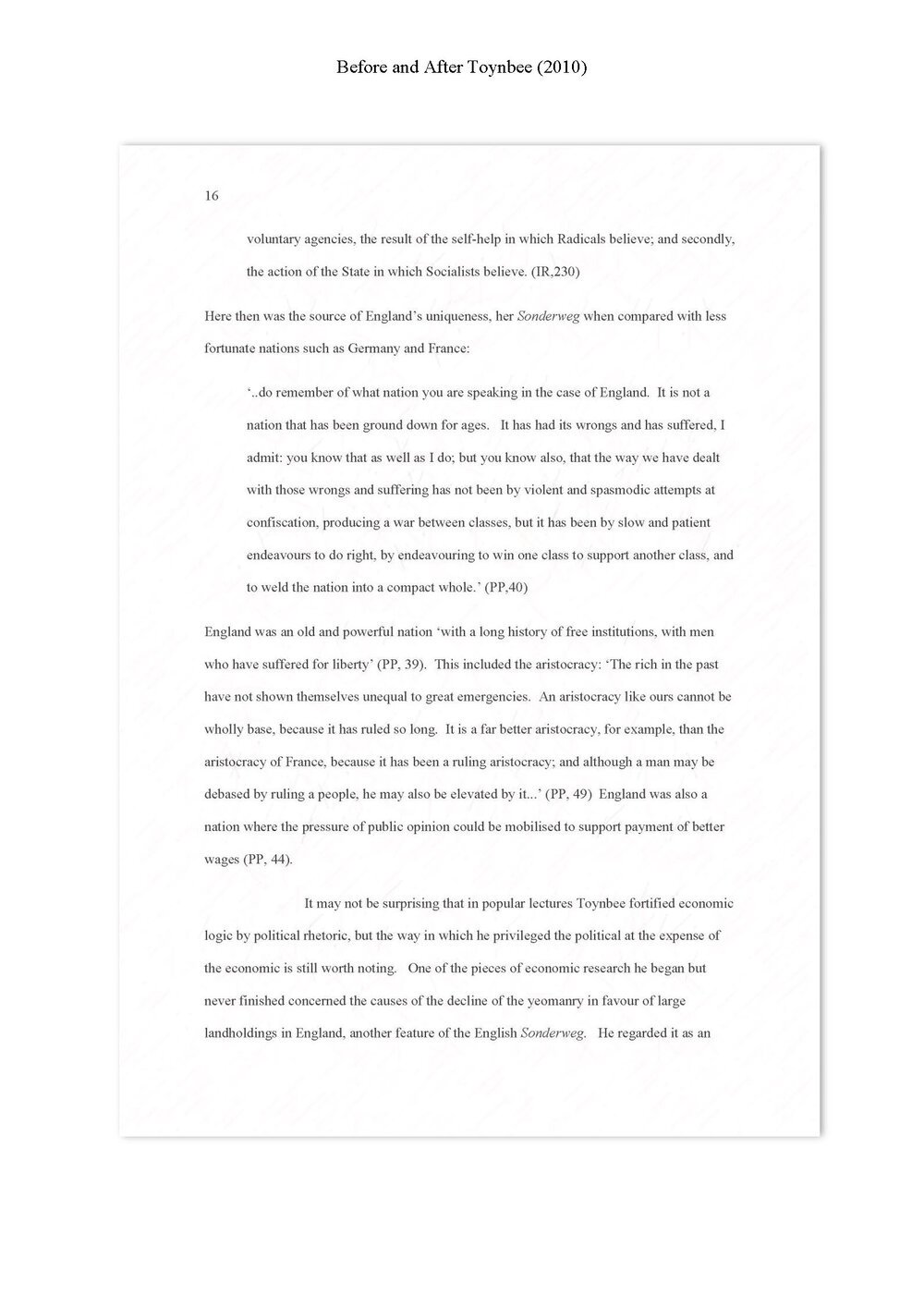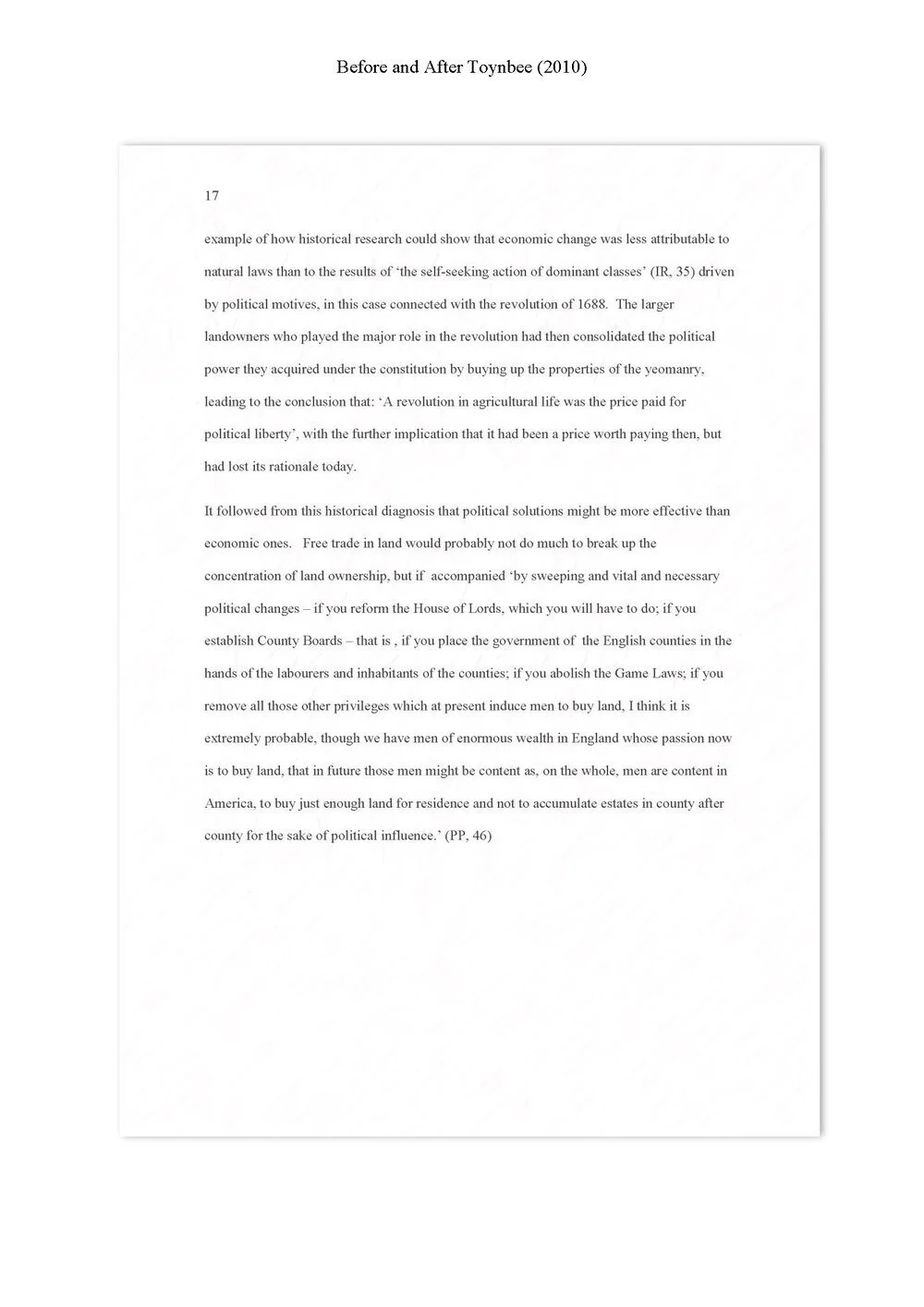Before and After Toynbee
Item No. 19.
Arnold Toynbee, 1852-1883
When Donald Winch delivered his Carlyle Lectures at Oxford in 1995, he finished the series with a lecture on Arnold Toynbee, whose own Oxford lectures, given at Balliol in the early 1880s and posthumously published as The Industrial Revolution of the Eighteenth Century in England (1883), had become significant to his research in several important ways. As Winch himself expressed it in this lecture, Toynbee provided a useful vantage point from which to view the development of British political economy in the 19th century and its transformation going into the 20th century. For one thing, Toynbee demonstrated that it was possible to reject the so-called wage fund theory – a staple of classical political economy – without adopting a marginalist approach to wage determination. Like his mentor R. D. Collison Black, Winch was keen to undermine the sharp discontinuity of the so-called Marginal Revolution of the 1870s, and Toynbee’s anti-Ricardianism provided an alternative approach, combining economic history with deductive reasoning, that could be used to challenge the standard Whig narrative of scientific progress.
Toynbee was also significant to Winch due to his self-designated role as a reconciler, as someone whose earnest ambition it had been to defend political economy from both its enemies and its false friends. As an economist, he took the romantic critique of the ‘dismal science’ very seriously, and in his lectures on the Industrial Revolution he incorporated a lot of this criticism into a catastrophist narrative of the emergence of capitalism which contrasted the severity and inhumanity of his predecessors, John Stuart Mill included, with the reformed economic and political thinking of his own generation. As he stated, the ‘bitter argument between economists and human beings has ended in the conversion of the economists.’ However, as Winch sought to point out, Toynbee’s effort to put an end to this cultural dispute between the detractors and defenders of political economy had also helped to perpetuate a number of misrepresentations about classical political economy; misrepresentations which had begun with the romantic attack on Malthus and which - with Toynbee as the crucial conduit - had been passed on to the 20th century and found their way into the historical narratives of R. H. Tawney, Raymond Williams and E. P. Thompson.
In the decades after his Carlyle Lectures and the subsequent publication of Riches and Poverty (1996), Winch frequently returned to Arnold Toynbee as someone with whom it was worth having a conversation. Despite Toynbee’s claim to the contrary, the bitter argument between economists and human beings had not ended in the late 19th century, and in 2012 Winch published the follow-up volume Wealth and Life which can be seen as the result of a prolonged conversation with Toynbee and the romantic criticism to which he responded. Unlike Toynbee, however, Winch did not presume to resolve the dispute. That would be beyond his remit as an intellectual historian. What he wanted instead was to provide clarity about the various positions of the debate so that the conversation could be improved. As he wrote in his Carlyle Lectures:
“Although historians are under no obligation to resolve past disputes, there does appear to be a need for a form of intellectual history that combines sympathy with enough distance to ensure that we do not simply perpetuate previous misrepresentations.”
In 2010, Donald Winch was asked to give the opening address to the Victorian Studies Group at Cambridge University, which that year focussed on Arnold Toynbee. In his talk, which is made public here for the first time, he re-emphasised Toynbee’s position as a transitional figure in British political economy (a position usually attributed to William Stanley Jevons). Or more precisely, he drew attention to Toynbee as someone in whose work a number of important transitions were eminently reflected.
- L. Andersen

